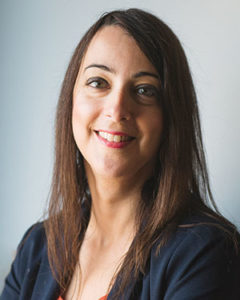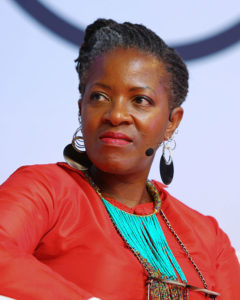His Honour, Dr. Ponatshego H.K. Kedikilwe, was appointed Vice President of the Republic of Botswana on 1 August 2012. He is a graduate of Syracuse University in New York. He has served as a senior civil servant in the ministries of Finance and Development Planning, Works and Communications and headed the Department of Public Service Management. In addition, he has served as Minister for Presidential Affairs and Public Administration, Commerce and Industry, Finance and Development Planning, Education and Minerals, Energy and Water Resources. He has served as Chairman of the University of Botswana Council and was Member of the Monetary Preparatory Commission which recommended the establishment of the Bank of Botswana and use of the Pula currency in 1976. He has served in various key parastatal and private organisations in Botswana and chaired the famous Presidential Commission on Education in 1992. That same year, he was awarded a Presidential Order of Honour. He received an Honorary Degree of Doctor of Laws from the University of Botswana in 2007. In November 2011 His Majesty the Emperor Akihito of Japan conferred on Dr. Kedikilwe the highest award in that country, the distinction of the Grand Cordon of the Order of the Rising Sun for efforts in sustaining and developing the bilateral relations between Japan and the Republic of Botswana. In 2014 Dr. Kedikilwe was awarded Naledi ya Botswana (NYB), an honour given for outstanding service to the Republic of Botswana. He was a Member of Parliament for 30 years (1984 – 2014). After his retirement the President of Botswana appointed him Chairman of the Presidential Inspectorate Task Team to assess, monitor and propose interventions to improve the delivery of Government programmes and projects such as Poverty Eradication, Youth Development Fund, Women Economic Empowerment and Economic Diversification Drive.
Uri Hasson grew up in Jerusalem. As an undergraduate, he studied philosophy and cognitive sciences at the Hebrew University. He completed his PhD in Neurobiology at the Weizmann Institute in Israel and was a postdoctoral fellow at NYU before moving to Princeton. He is currently a Professor in the Psychology Department and the Neuroscience Institute at Princeton University. His research program aims to understand the neural basis of face-to-face, brain-to-brain, social interaction, with a focus on verbal communication and storytelling in real-life contexts.
Theo Sowa is an independent advisor and consultant, specialising in international social development with a particular emphasis on children’s rights and protection issues. She is currently the CEO of the African Women’s Development Fund.
Born in Ghana, she has lived and worked in many countries in Africa, as well as the UK, Europe, and the USA. Her work includes advisory roles to African and other international women and children’s rights activists and leaders, plus policy development and advocacy with a variety of international agencies and organisations. She was Senior Programme Advisor to the UN Study on Children and Armed Conflict (the Machel Report) and led the five-year review of the report.
Sowa is a board member of various national and international civil society organisations and grant-making foundations, including being a trustee of Comic Relief (a multi-million grant-making foundation) and Chair of Comic Relief ’s International Grants Committee; a member of the African Advisory Board of the Stephen Lewis Foundation; a Patron of Evidence for Development; a member of the UBS Optimus Foundation; and a board member of the Graça Machel Trust.
She has authored many publications, including being a contributing editor to “The Impact of War on Children”; a contributing author and co editor of a Harvard Law School/UNICEF Innocenti publication on “Children and Transitional Justice”; and co author of “Groupwork and Intermediate Treatment.” She was awarded Commander of the Most Excellent Order of the British Empire (CBE) in June 2010.

Rebecca Shansky is an Assistant Professor in the Psychology Department at Northeastern University in Boston, Massachusetts. Her doctoral work at Yale University examined the influence of sex hormones on stress-related cognitive impairments, identifying an interaction between estrogen and catecholamine signaling. As a postdoctoral fellow at the Mount Sinai School of Medicine, she studied the effects of chronic stress on prefrontal circuitry, again focusing on the role of estrogen in mediating the structural changes the brain undergoes in response to stress. Now her lab focuses on identifying the neurobiological basis of sex differences in fear responding, integrating complex behavioral analyses and confocal microscopy to identify cellular markers of susceptibility and resilience.
Mandaza Augustine Kandemwa is a spirit-medium and medicine-man from Bulawayo, Zimbabwe. In Shona, his native tongue, he is known as a Mhondoro, Svikiro and Gombwa. He was initiated through the tradition of the njuzu, the water spirits. As a vessel of the Spirits, Mandaza receives visions and dreams, makes offerings, performs healing rituals, and serves as a messenger for the Ancient Ones. Mandaza carries with him in his heart the Central African spiritual tradition of healing and peacemaking. He is known internationally for his loving presence and for his preservation of the old ways. He stands for Truth, Love, Justice and Peace in this world.
Mandaza was raised in a Christian home, trained as an educator, school administrator, and police officer in Apartheid Rhodesia, now Zimbabwe. During this time, he became actively involved in the liberation struggle. Like the water spirits he carries, Mandaza flows between the worlds. He easily moves between the worlds of Christianity, the secular, the traditional, the modern, the industrial and the earth ways: all that is sacred and profane. Currently, Mandaza travels internationally offering teachings and healing counsel in churches, schools, prisons and hospitals. He co-authored, with Michael Ortiz Hill, Twin from Another Tribe and The Village of the Water Spirits, two of the few books that discuss Shona cosmology and traditional practices. Mandaza serves a large community in Zimbabwe that is dependent on him for food, clothing, education, healing and spiritual nourishment. Mandaza is married to the Ndebele trance medium Simakuhle Dube and has twelve children, ten boys and two girls.
The Dalai Lama is a man of peace. He has consistently advocated policies of non-violence, even in the face of extreme aggression. He also became the first Nobel Laureate to be recognized for his concern for global environmental problems. He has travelled to more than 67 countries spanning six continents. He has received over 150 awards and honorary doctorates in recognition of his message of peace, non-violence, inter-religious understanding, universal responsibility and compassion. He has also authored or co-authored more than 110 books, including the “Book of Joy” with Archbishop Desmond Tutu.
The Dalai Lama, Tenzin Gyatso, was born on 6 July 1935 to a farming family in a small hamlet of Tibet. He is now the spiritual leader of Tibet, yet describes himself as a simple Buddhist monk. At the age of 23 he passed a rigorous examination with honors and was awarded the Geshe Lharampa degree, equivalent to the highest doctorate in Buddhist philosophy. In 1950, after China’s invasion of Tibet, he was called upon to assume full political power. Therefore, in 1954, he went to Beijing and met with Mao Zedong and other Chinese leaders. Five years later, following the brutal suppression of the Tibetan national uprising in Lhasa by Chinese troops, the Dalai Lama was forced to escape into exile. Since then he has been living in Dharamsala, northern India.
In 1963, he presented a draft democratic constitution for Tibet. The charter enshrines freedom of speech, belief, assembly and movement. It also provides detailed guidelines on the functioning of the Tibetan Administration with respect to Tibetans living in exile. In 1992, the Central Tibetan Administration published guidelines for the constitution of a future, free Tibet. In 1989 he was awarded the Nobel Peace Prize for his non-violent struggle for the liberation of Tibet.

Rev. Canon Mpho Tutu Van Furth is a priest, wife, mother, artist, theologian, and public speaker. She is passionate about the flourishing of all people, especially girls, and the planet. She is the daughter of Archbishop Desmond Tutu and Leah Tutu.
Tutu Van Furth has traveled extensively as a public speaker and priest. She has previously worked in Washington, D.C. and New York City in programs providing loans and scholarships to South Africans and refugees. She was ordained by the Episcopal Church in 2004. She founded the Tutu Institute for Prayer and Pilgrimage in 2005, and served as its executive director until 2011. From 2011 until 2016, she worked as executive director of the Desmond and Leah Tutu Legacy Foundation. She has co-authored two books with her father, Made for Goodness and The Book of Forgiving, and has co-authored a book about her father, Tutu: The Authorized Portrait.

